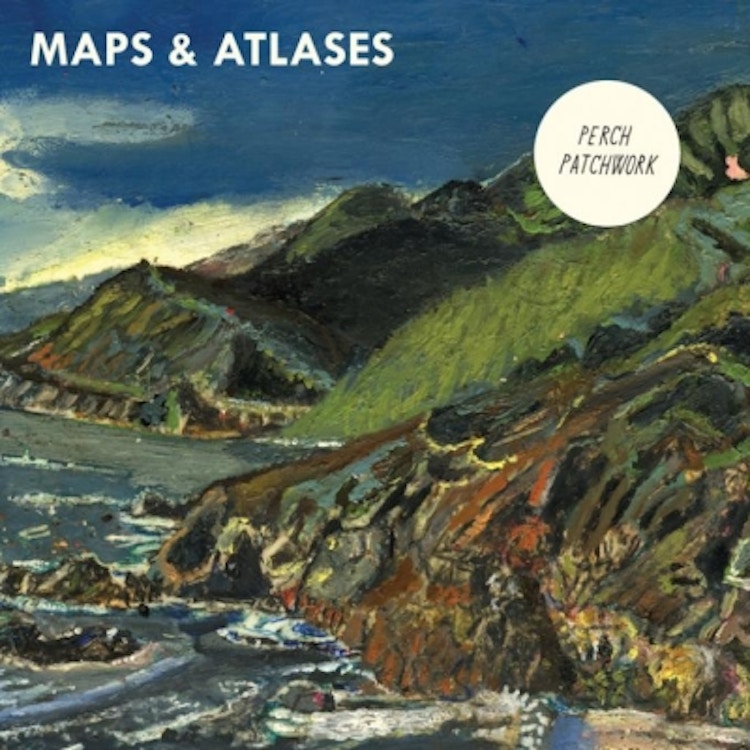Maps & Atlases – Perch Patchwork
"Perch Patchwork"

Whatever comfort zone the Chicago math-rockers Maps & Atlases constructed through their first two highly inventive EP’s, they’ve certainly managed to expand and broaden those loose sonic boundaries on their distinctly sophisticated debut full-length, Perch Patchwork. They’ve scaled back on the somewhat esoteric melodies that featured so prominently on their early material, and replaced that with buoyant, poppy songs that still maintain the quartet’s fitful experimentalism, but are ultimately much more accessible and engaging. Blending the dexterous guitar work of Dirty Projectors with the relentlessly precise rhythms of Battles, Maps & Atlases have a studied, meticulous sound that still manages to be lively and pleasurable.
The dynamic instrumental ‘Will’ kicks the record off, and comes off as a group warm-up and tuning session before ‘The Charm’ begins, with everyone stretching their sound out a bit before the proceedings truly start. The fact that the band chose to include it as the lead-off track on their long-awaited debut album shows that they are prepared to entirely deflect all the expectations and pressure placed on them by the music industry, crafting the record purely on their own inspired terms. Lead singer Dave Davison experiments a bit with his vocals on ‘The Charm,’ adding extra humor to the dry hysterics of the opening lines: “I don’t think there is a sound that I hate more than the sound of your voice when you say that you don’t love me anymore.” It’s an uproarious, animated number that belies the inherent sadness threaded through the lyrics, and I was hooked by the irresistible allure of Maps & Atlases newly developed sound immediately.
The production and intricate instrumentation is flawless throughout the record, with the band weaving their tempestuous waves of sound perfectly over Davison’s oscillating vocals, sounding like Tunde Adebimpe one second, and Edward Droste the next. There are many exquisite textures layered within each of these songs, and while there is always a lot going on musically, the tracks are never bogged down by all the activity, maintaining a light, coherent lilt that pulses at the heart of these lively numbers. ‘Living Decorations’ churns with a modern urgency, while ‘Solid Ground’ simmers with the yearning of a lover scorned. ‘Is’ forms a welcome bridge to the album’s centerpiece, ‘Israeli Caves,’ that treads awfully close to Dave Matthews territory, but thankfully never fully crosses that line, mainly due to Davison’s vivid, provocative lyrics and the boundless talent of the musicians involved.
The album’s spirited second half finds the band cutting loose a bit more, as the melodies become a touch more frantic and dynamic, with each ambitious song blending fluidly into the next. ‘Pigeon’ features bold fretwork reminiscent of David Longstreth’s complex guitar playing, settling down into a festive Latin rhythm that is as catchy as it is surprising. And the straightforward, 60s-radio stomp of ‘If This Is’ chugs along vigorously, with a breakdown where Davison’s voice becomes the wildest instrument in the band.
‘Was,’ the last of the cleverly titled instrumentals featured on the album (along with ‘Will’ and ‘Is’) forms a lovely segue into the title track, which closes out the record strongly with an extended coda featuring the appropriate phrase “With the race over, we’ll take what we can get,” that finds the band fully indulging in the bold experimentation that they’ve managed to reign in for most of the record. Maps & Atlases, despite the definitive nature of their name, takes the listener in many different directions on Perch Patchwork, a daring, auspicious album that puts a welcome pop spin on the band’s vibrant, eclectic sound. What path they choose to take their music in the future is anyone’s guess, I just know I’ll be listening.
Get the Best Fit take on the week in music direct to your inbox every Friday

Lorde
Virgin

OSKA
Refined Believer

Tropical F*ck Storm
Fairyland Codex





